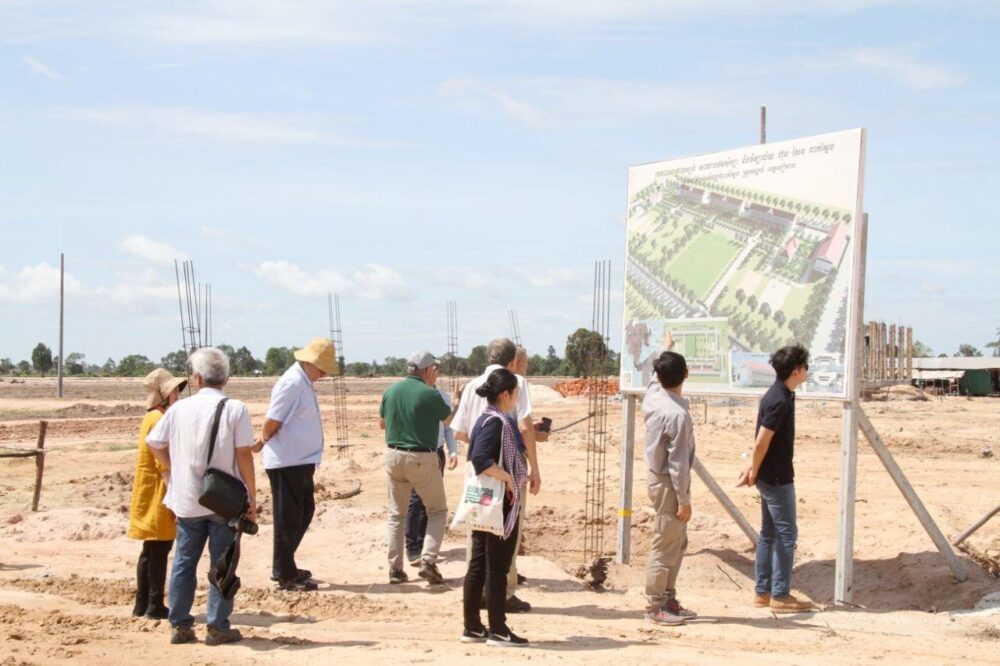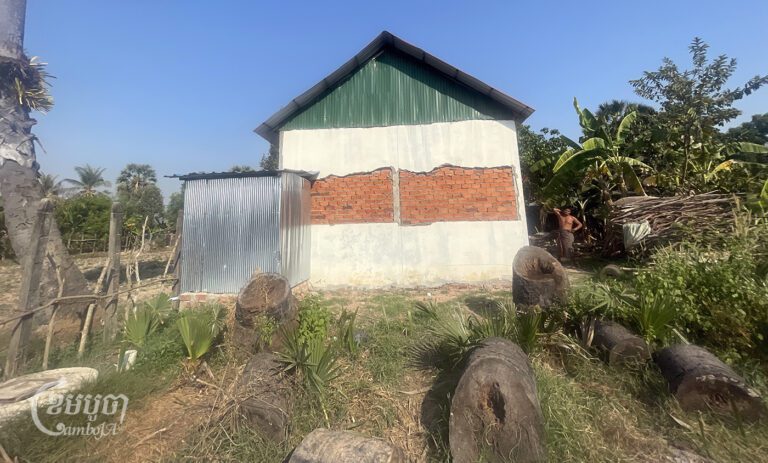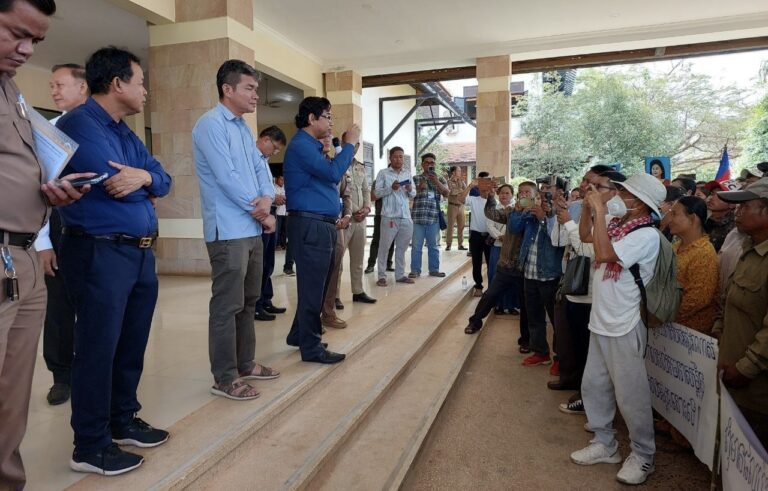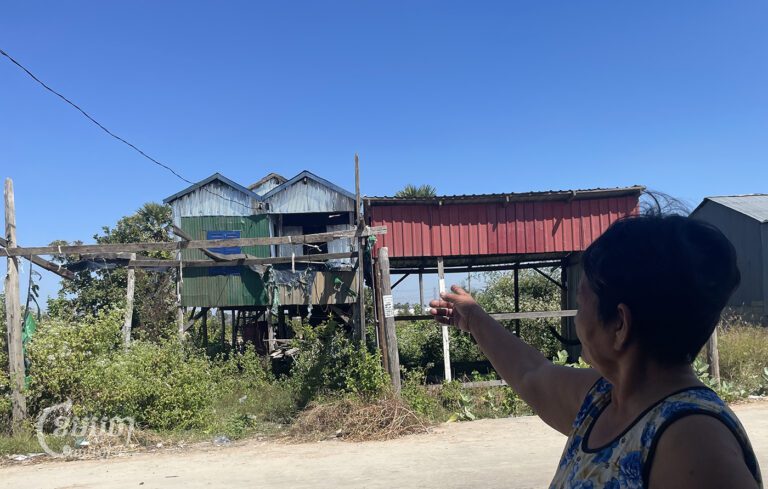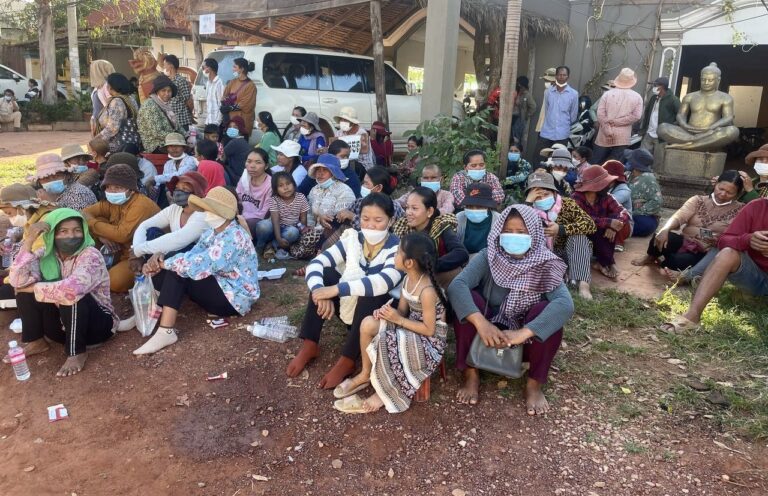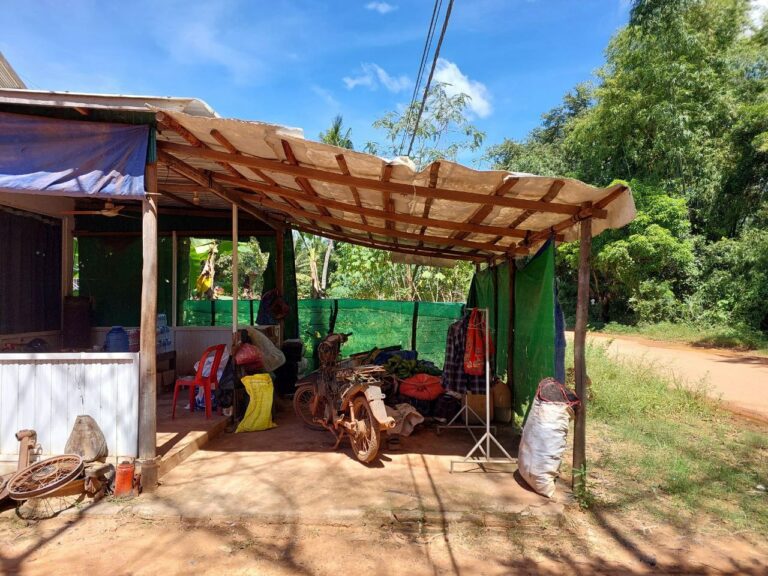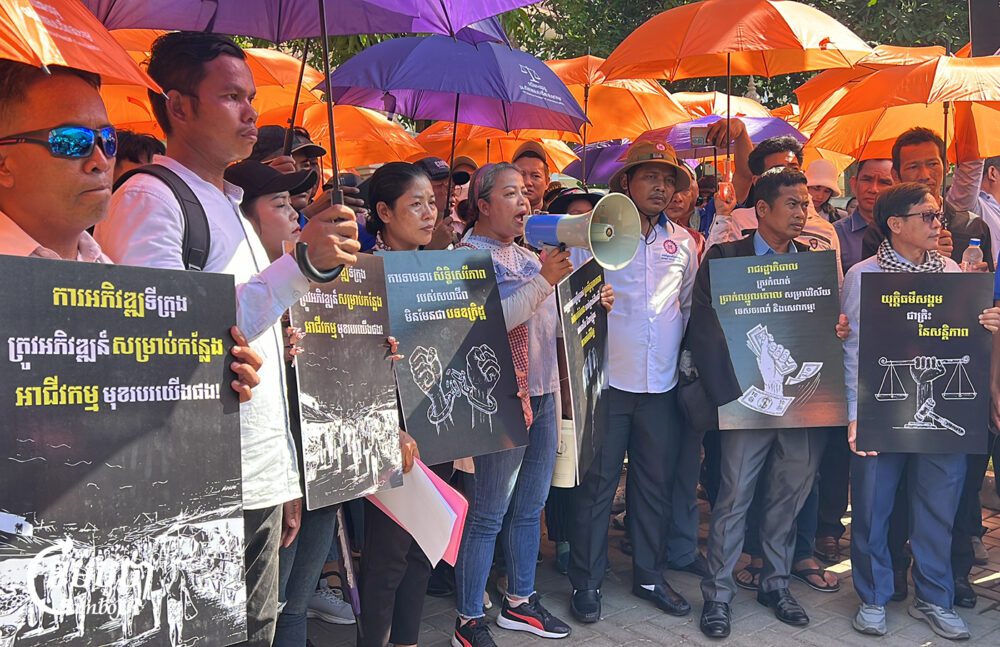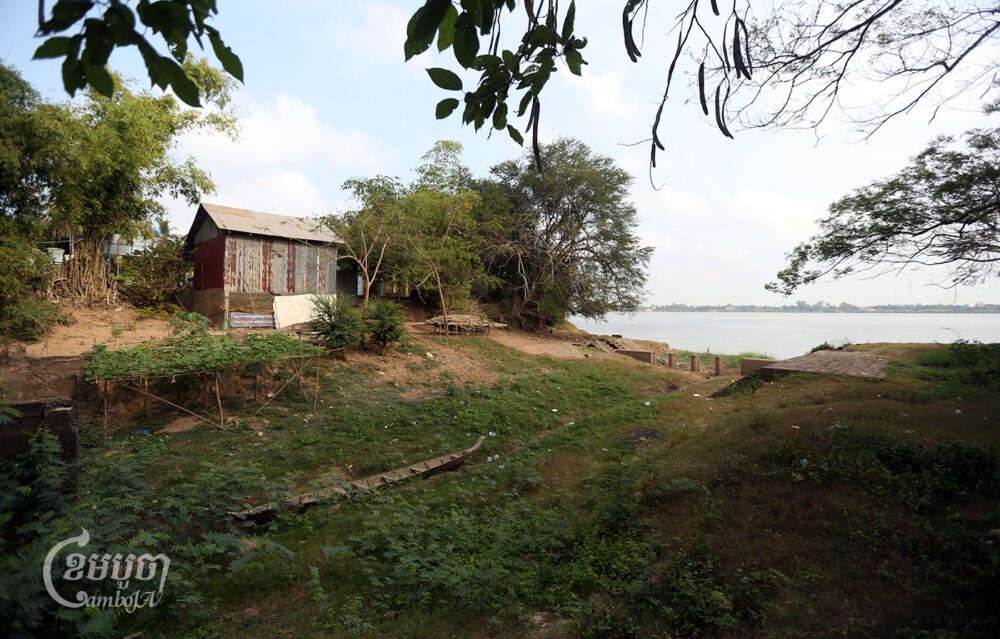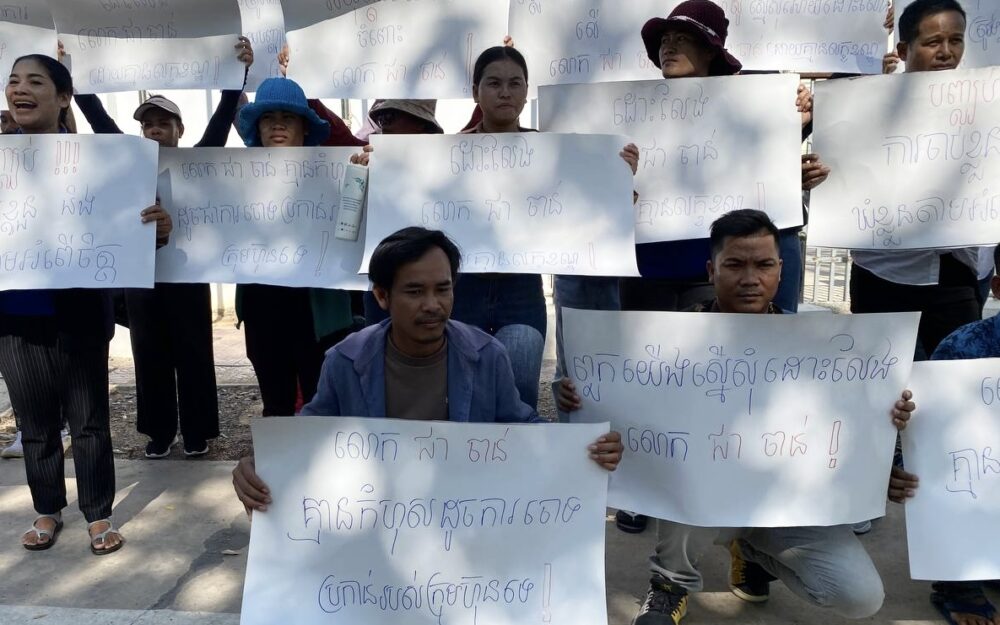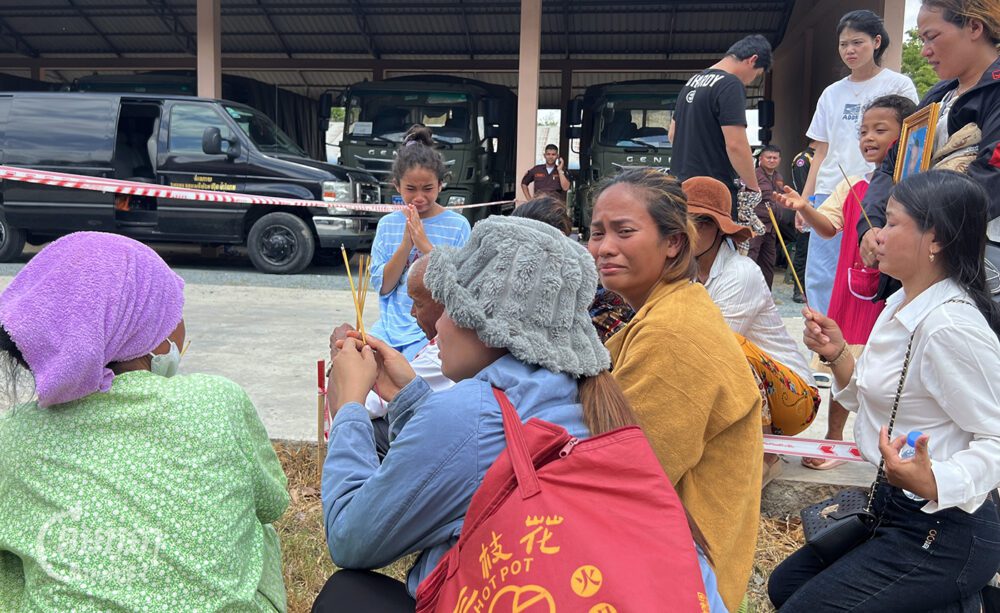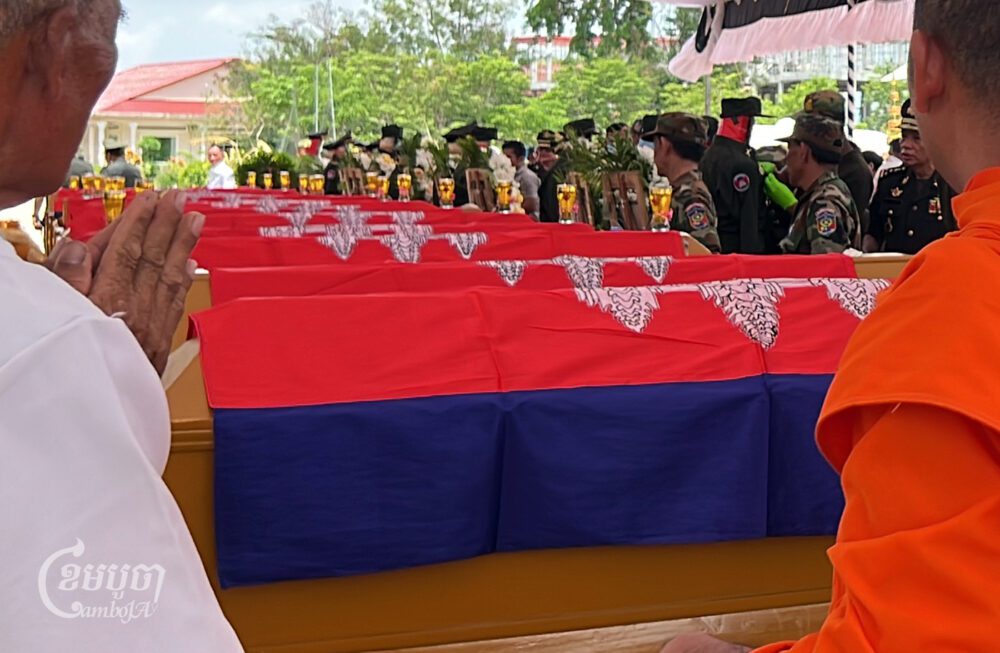UNESCO-affiliated experts visited two Siem Reap relocation sites on Wednesday where thousands of families are being moved from inside the Angkor temple complex, according to the Apsara Authority.
“The experts expressed great satisfaction with the ongoing development in both areas,” the Apsara National Authority, which manages the Angkor Archaeological park, stated in a Thursday press release.
The International Coordinating Committee for the Safeguarding and Development of the Historic Sites of Angkor (ICC-Angkor) experts and secretariat inspected the Run Ta Ek and Peak Sneng relocation sites, where the government is sending thousands of people formerly living inside the Angkor complex.
Residents in the park and rights groups have said that people are being forced to leave the Angkor Park and move to the two sites, which they say remain largely devoid of essential infrastructure.
ICC-Angkor hosted its 37th technical session this week, which included addressing the issue of illegal constructions inside the Angkor park, said the French and Japanese embassies in Phnom Penh, who are also co-chairs of ICC-Angkor.
ICC-Angkor experts “praised the Royal Government of Cambodia’s efforts to promote the outstanding value of Angkor by continuing to uphold and adhere to UNESCO principles,” Apsara claimed on Thursday.
APSARA National Authority spokesperson Long Kosal told CamboJA that the government’s policy is for people to “volunteer” for relocation to the new sites.
“UNESCO underlines, for all the sites in the world, that the conservation measures decided by the authorities must involve, take into account the opinion and respect the rights of local communities,” UNESCO has told CamboJA.
But a CamboJA investigation found that numerous families said they felt pressured by authorities and were forced to “volunteer” for relocation to Run Ta Ek, a site that lacked basic infrastructure and limited economic opportunities. Other media reports have exposed similar allegations.
Amnesty International called the relocations “forced evictions in disguise” in late March.
UNESCO did not respond to request for comment but has previously stated it is not involved in relocation efforts, though Prime Minister Hun Sen said in September that the relocations are intended to appease UNESCO.
Kosal, Apsara’s spokesperson, said the ICC Angkor experts did not raise or ask questions about allegations of human rights violations during the intergovernmental meetings this week.
“There was no [discussing] human rights situations, and I would like to inform you that experts of the ICC inspected the relocation sites yesterday, and they saw the actual better development that working groups are doing [on the infrastructure],” Kosal said.
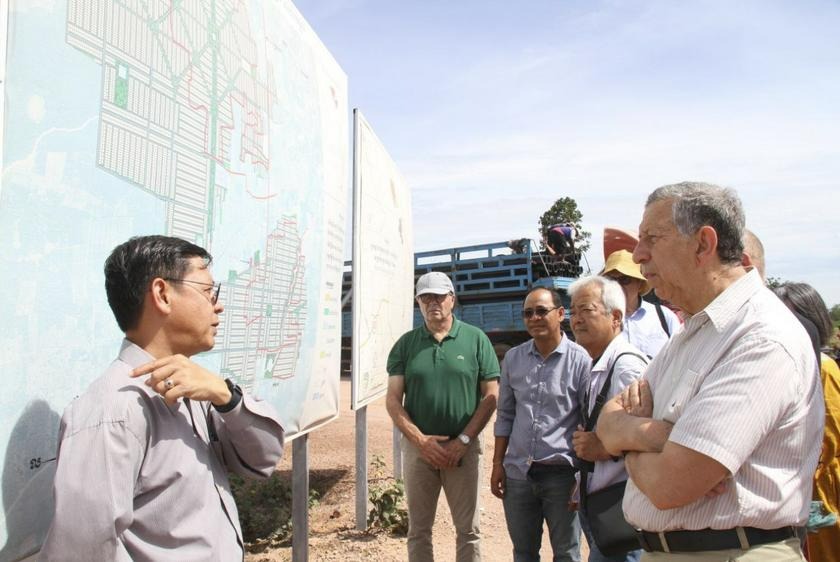
The Japanese embassy stated that its officials have visited the relocation sites alongside UNESCO and Cambodian government officials “to check the progress.”
The embassy said that during the technical session this week Apsara’s director general Hang Peou explained that the “status of infrastructure facilities in Run Ta Ek Eco Village since the last plenary session of the ICC in December 2022 was covered in the report from the Royal Government.”
An ad hoc group of experts, along with UNESCO representatives and Cambodian government officials, had visited Run Ta Ek in December. “The experts were generally impressed by the changes since their last visit in December 2022,” the embassy said.
UNESCO received a report from the Cambodian government in December stating that the Run Ta Ek relocation site had been “equipped” and prepared to receive families in “decent and safe conditions,” CamboJA reported.
But visits to the relocation sites by CamboJA and other media have shown little infrastructure was available for months and families had to partially fund and construct their own homes at the relocation site.
The French embassy said the session “addressed the issue of illegal constructions at Angkor” and “measure taken by the Royal Government to safeguard the integrity of the Angkor site as well as to control illegal constructions.”
The French ambassador had “recently” visited the Run Ta Ek site, the embassy stated.
A US embassy spokesperson declined to comment and referred questions about the relocations to Cambodian authorities.
The EU, Swedish and German embassies did not respond to requests for comment.
Culture and Fine Arts Minister Phoeung Sakona did not respond to requests for comment.
“They [ICC experts] have seen students go to school at Run Tak Ek, they saw the market was already prepared, and they saw people [who volunteered to relocate] and received zinc [corrugated roofs for homes] as government policy, and they expressed that they were very happy,” said Apsara’s Kosal.
The Apsara spokesperson declined to share the total number of families sent to the site but has previously stated more than Run Ta Ek would house at least 9,000 families.
“At the current site they are living in [the Angkor park] we have seen they have no well-being, no good hygiene…and no future for their next generation because that site [Angkor park] needs to implement lots of UNESCO [conservation] principles,” Kosal said.
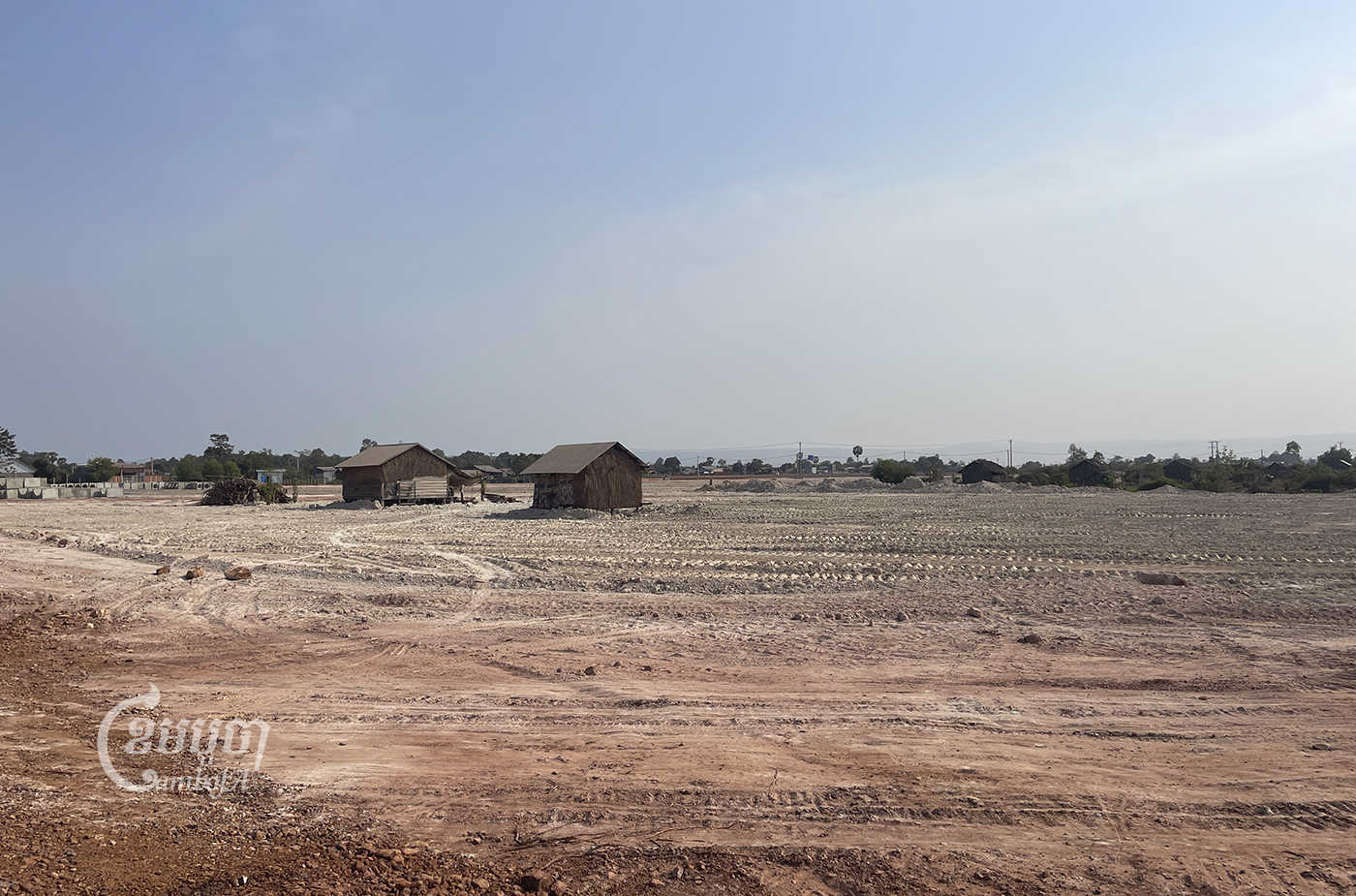
Residents living inside the park, who do not currently face displacement but lack land titles, have protested against what they say are Apsara’s strict policies against home expansion and fish farming.
Ea Rey, one of families who arrived at Run Ta Ek in February, said that the electricity and clean water system were connected that same month.
The health center had since been completed but not yet opened and the school’s construction appeared around 70% finished. Road construction had begun outside her house, she said.
“I started to use the electricity in March and I am now applying for clean water,” Rey said. “Currently, I use water from the well, and for clean water, I took it from an organization.”
She has received around $100 per month from the government funds via her IDPoor card which will be valid for the next 10 years, according to a policy announced in October by the Prime Minister.
The government also allocated an additional 896 hectares of land in Peak Sneng commune in December to expand the relocation site to a total of 1,300 hectares for thousands more families slated for removal from the Angkor Park. The second site is spread across Peak Sneng, Svay Chek and Leang Dai commune in Siem Reap’s Angkor Thom district.
In late May, Peak Seng’s commune chief Sok Sea told CamboJA that local families were disputing displacement from their farmlands to make way for families being sent from the Angkor complex. Peak Sneng families said they were being given significantly less compensation than their farmlands.
More than 3,000 families were expected to arrive at Peak Sneng in July, the commune chief said.
Editorial Note:
UNESCO Associate Program Specialist Carole Idczak wrote an email to CamboJA on June 12 stating that the phrase “UNESCO-affiliated ICC-Angkor Experts” was “misleading.”
“ICC Ad-hoc experts are independent and they don’t work for UNESCO or any other development partner or for any government in their capacity as ICC ad-hoc experts, and are fully sovereign in their decision making and recommendations on the conservation and sustainable development matters at Angkor in line with the Charter of ICC Angkor,” Idczack wrote.
CamboJA has chosen to retain the original language of the article.
While the opinions of the ICC ad-hoc experts when visiting the relocation sites may represent their own independent views, these experts are working as part of a group that is officially associated with and, in part, funded by UNESCO, according to the Cambodian government and UNESCO itself.
“The UNESCO Office in Phnom Penh hosts the [ICC-Angkor] Secretariat and provides many of the costs associated with the missions of the ad hoc experts, while since 2006 the Apsara Authority has contributed to the support of ICC-Angkor,” according to Apsara Authority’s website.
“In each session of ICC-Angkor, ambassadors or senior diplomats or government officials from France and Japan, co-chair the meeting,” Apsara Authority states.
ICC-Angkor “has its own rules” and receives reports on development projects implemented in the region, Apsara Authority adds.
When CamboJA attempted to visit ICC-Angkor’s official website, the site could no longer be accessed. An archived version of the website shows the UNESCO logo prominently displayed.
“The action of the International Coordinating Committee (ICC-Angkor) for the safeguarding and development of this exceptional cultural site [Angkor] is a striking example of international solidarity and testifies to one of UNESCO’s most impressive achievements for heritage,” UNESCO states on its website.


